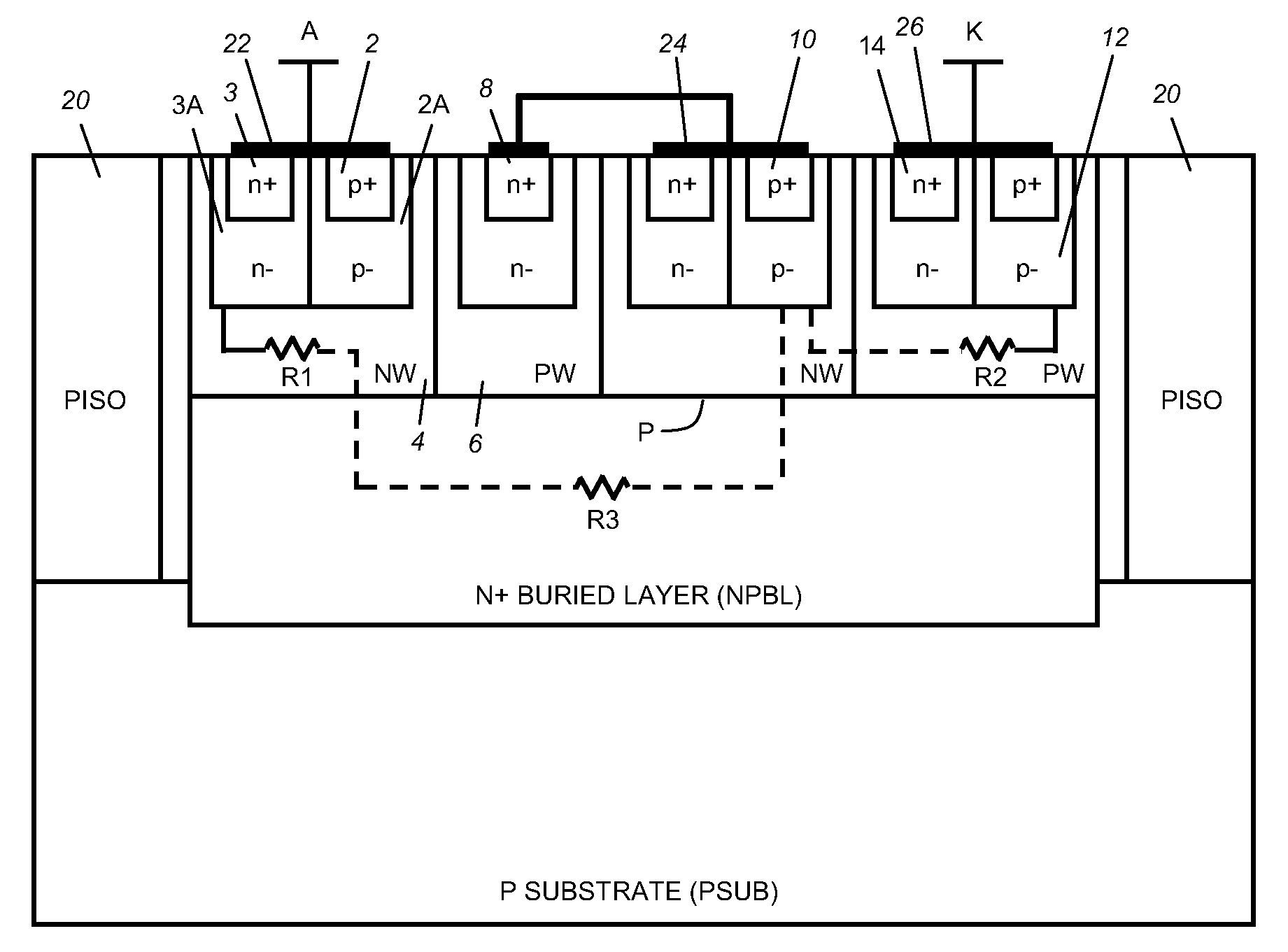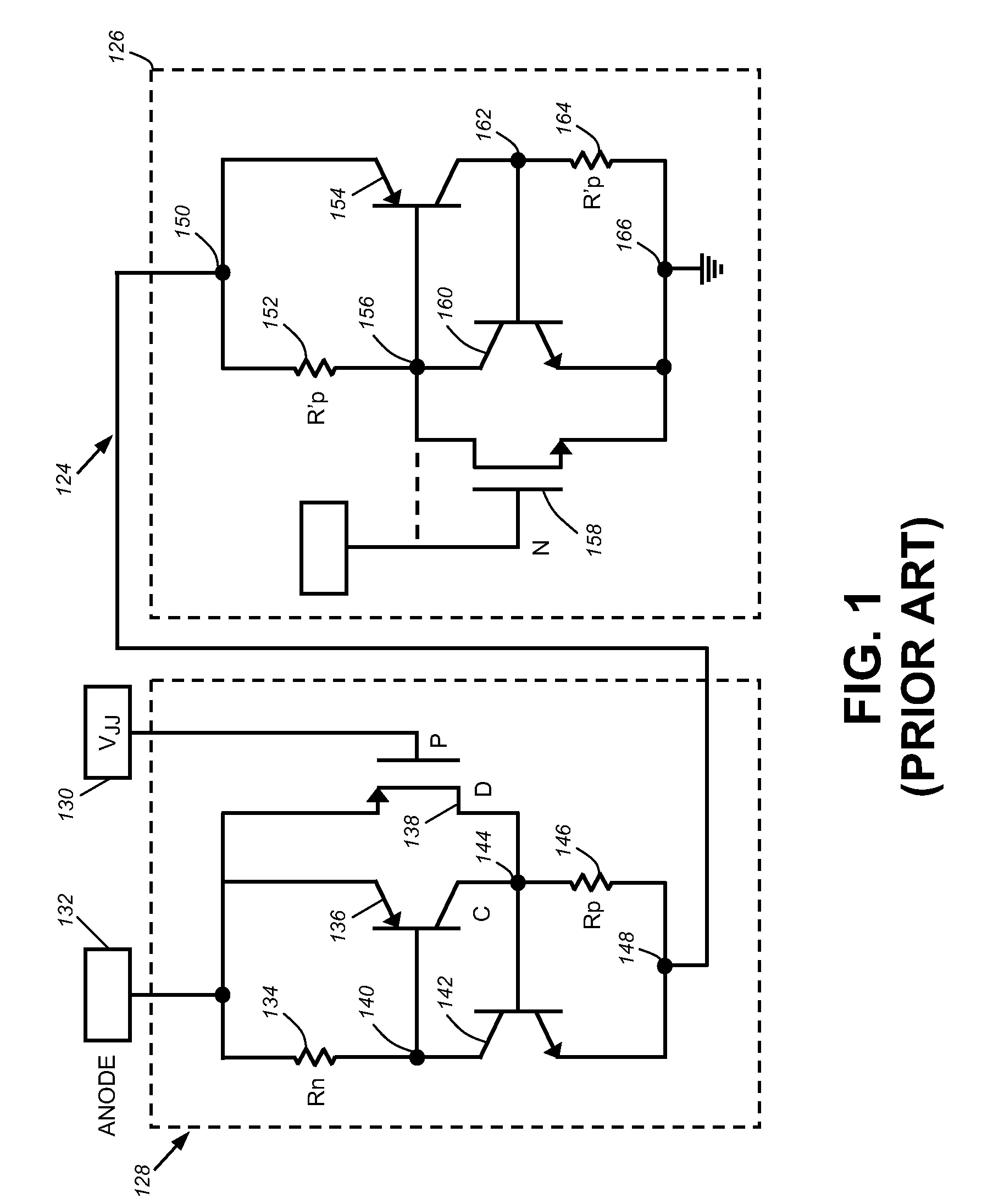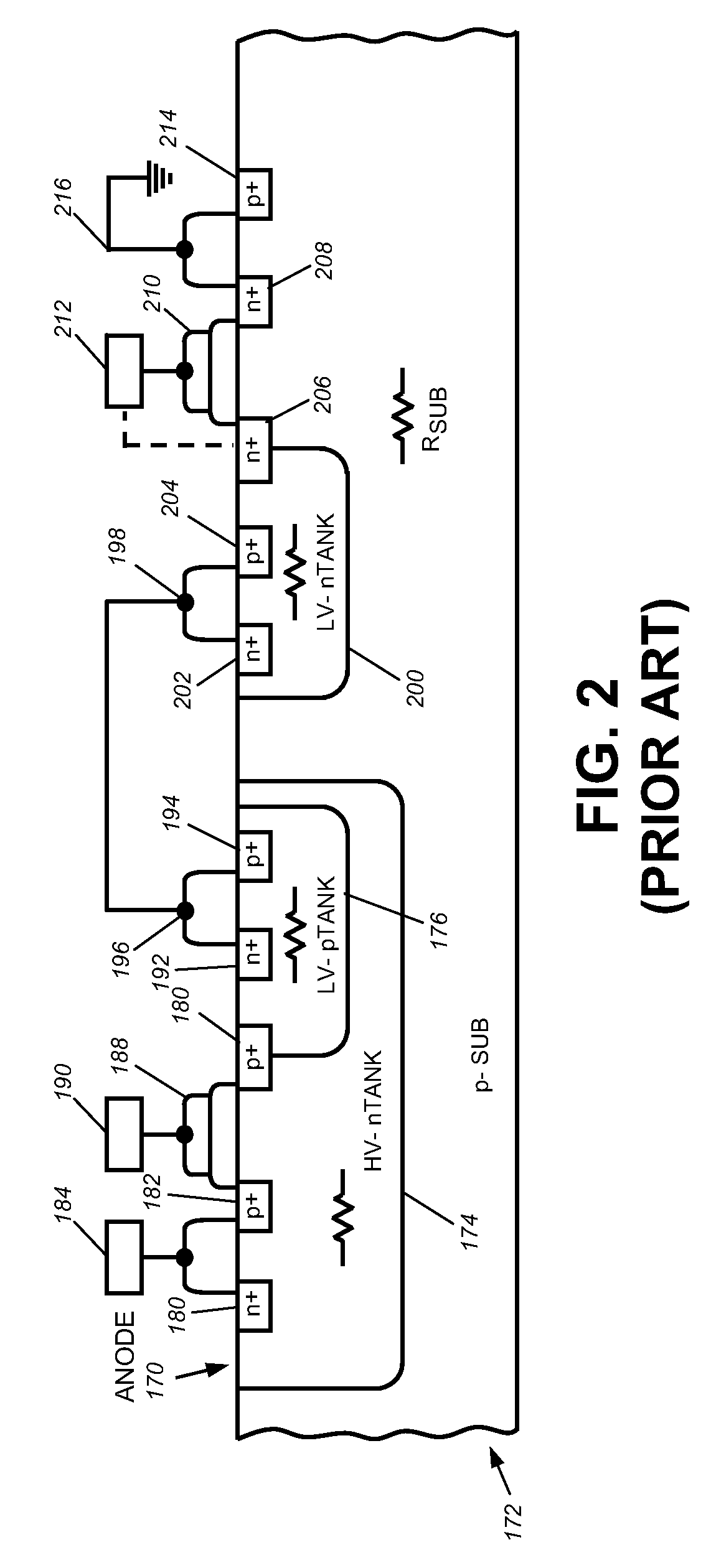Stacked scr with high holding voltage
- Summary
- Abstract
- Description
- Claims
- Application Information
AI Technical Summary
Benefits of technology
Problems solved by technology
Method used
Image
Examples
Embodiment Construction
[0022]FIG. 3 is a cross section view of an integrated circuit structure illustrating the present invention, and FIG. 4 illustrates a circuit illustration for the integrated circuit structure of FIG. 3. The circuit components of FIG. 4 are illustrated on FIG. 3, but, as known to those skilled in the art, the cross section integrated circuit to circuit diagram is inexact since points in the circuit diagram are areas in the cross section drawing. However, those skilled in the art will understand the relationship.
[0023]Of note, R3 connects the NW 4 (n-well) to the NW P (p-well) and to points 8 and 10 via metallization. This connection joins an internal point of the top SCR1 and an internal point of the bottom SCR2, and allows the circuit characteristics discussed below.
[0024]Location A is connected to a node in a circuit (not shown) that is to be protected from ESD. Note that when the structure of FIGS. 3 and 4 is off (not triggered) the bipolar transistors shown are all non-conducting ...
PUM
 Login to View More
Login to View More Abstract
Description
Claims
Application Information
 Login to View More
Login to View More - R&D
- Intellectual Property
- Life Sciences
- Materials
- Tech Scout
- Unparalleled Data Quality
- Higher Quality Content
- 60% Fewer Hallucinations
Browse by: Latest US Patents, China's latest patents, Technical Efficacy Thesaurus, Application Domain, Technology Topic, Popular Technical Reports.
© 2025 PatSnap. All rights reserved.Legal|Privacy policy|Modern Slavery Act Transparency Statement|Sitemap|About US| Contact US: help@patsnap.com



